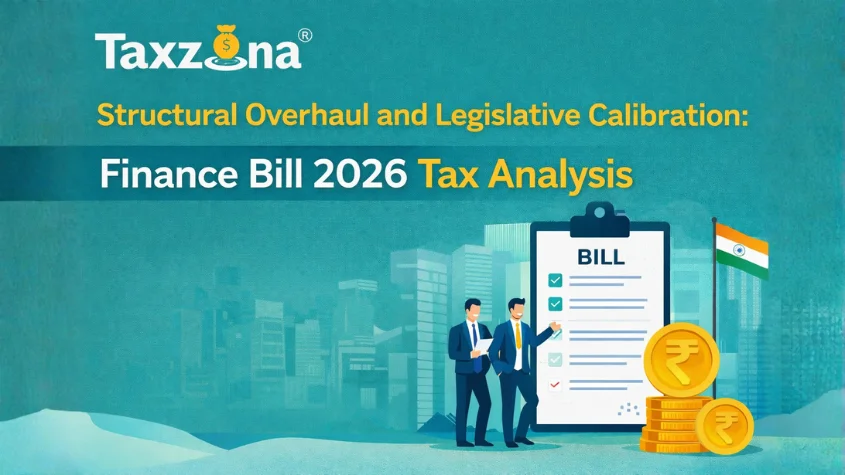
Allahabad HC: Patanjali GST Penalty Proceedings Under Section 122
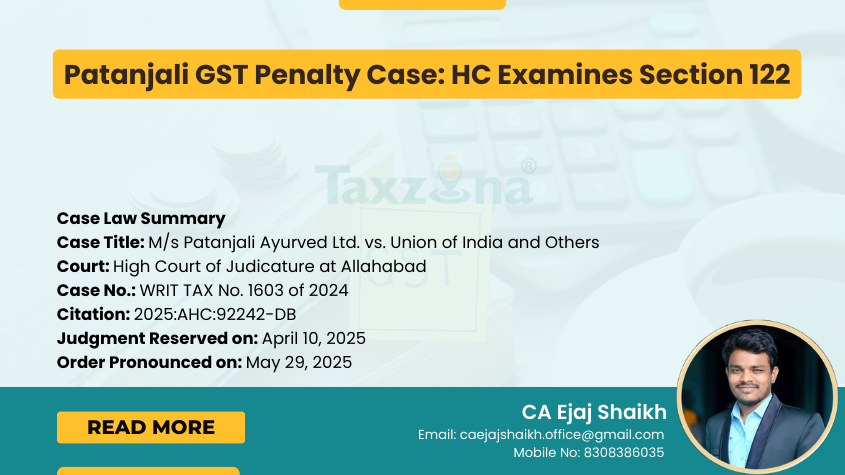
1. Issue Involved
- Whether penalty proceedings under Section 122 of the CGST Act, 2017, can be initiated independently and simultaneously with proceedings under Section 74 of the CGST Act?
- Whether the dropping of tax demand and penalty under Section 74 automatically results in abatement or invalidation of penalty proceedings under Section 122?
- Whether the penalty under Section 122 is civil in nature and adjudicable by departmental officers, or whether it is criminal and triable only by a magistrate under Section 134?
Facts of the Case
- M/s Patanjali Ayurved Ltd., an FMCG manufacturer, has units in Uttarakhand, Haryana, and Maharashtra, each registered under GST with distinct GSTINs.
- Based on alerts regarding fake suppliers in Delhi (M/s S.G. Agro India Industry and M/s Magic Traders), the GST authorities suspected circular trading by the petitioner and issued a show cause notice dated 19.04.2024.
- The SCN was issued under Section 74 (for recovery of wrongly availed ITC) and Section 122 (for penalty relating to fake invoices and ITC) of the CGST Act.
- Total proposed penalty under Section 122 was ₹273.51 crores, split across the three units.
- The petitioner approached the Allahabad High Court, challenging the validity of penalty proceedings under Section 122, particularly after proceedings under Section 74 were dropped vide order dated 10.01.2025 for the Uttarakhand unit.
- The adjudicating authority dropped the Section 74 proceedings after finding:
- No shortages in inventory,
- ITC was passed further,
- Suppliers gave affidavits confirming supply,
- RTO data was unreliable and unauthenticated.
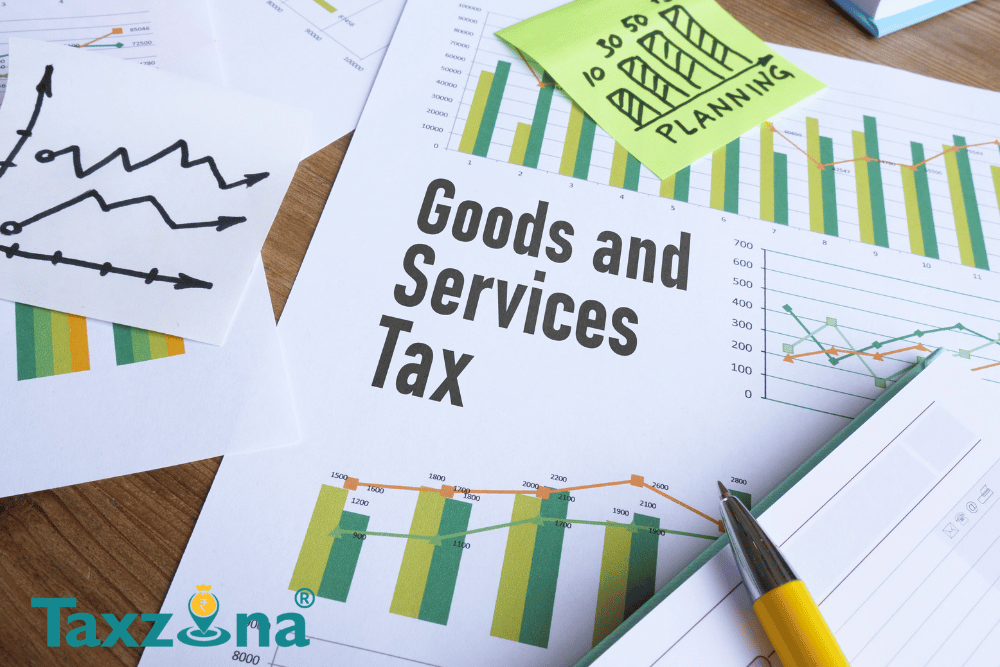
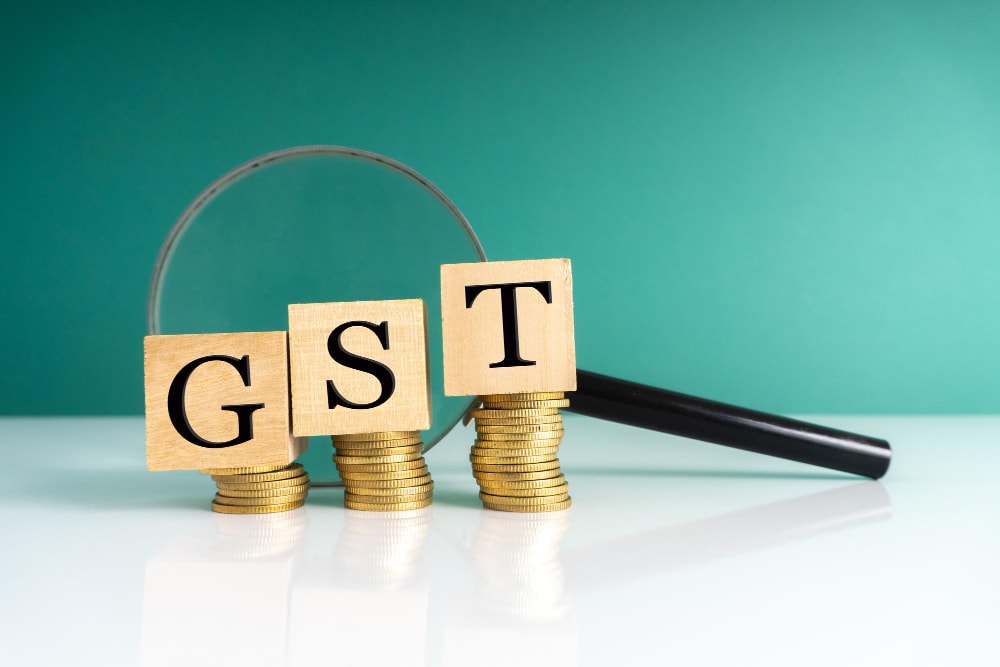
3. Observations of the Court
- The Court carefully considered the interplay between Section 74 (Demands & Recovery) and Section 122 (Penalty for Offences).
- It noted the core contention was whether Section 122 penalty proceedings could survive once the tax demand under Section 74 was dropped.
- It also considered the petitioner’s argument that Section 122 used terms like “offence“, “mens rea“, and “aiding & abetting“, which are characteristic of criminal proceedings, thereby requiring trial before a magistrate under Section 134.
- The Court examined Explanation 1(ii) to Section 74, which deems that if proceedings under Section 74 conclude against the main person, the penalty proceedings under Sections 122 and 125 shall also be deemed concluded; however, this is subject to conditions.
- The respondent argued that Section 122 imposes civil penalties, distinct from Section 132 (criminal offences), and that mens rea can exist in civil law without converting the nature of proceedings into criminal.
4. Judgment of the Court
- The judgment was reserved on April 10, 2025, and the Court continued the interim stay on Section 122 proceedings till further orders.
- As per the latest available order, the final decision on whether the penalty under Section 122 is civil or criminal is pending.
- No conclusive ruling was given in this order; however, the Court acknowledged the complex legal issues involved and the significant impact on GST litigation.
5. Case Laws and Circulars Relied Upon
Petitioner relied on:
- Shantanu Sanjay Hundekari v. Union of India – Bombay High Court
- Union of India v. Dharmendra Textile Processors (2008) 13 SCC 369
- Chairman SEBI v. Shriram Mutual Fund (2006) 5 SCC 361
- Standard Chartered Bank v. Directorate of Enforcement (2006) 4 SCC 278
- NC Dhoundial v. Union of India AIR 2004 SC 1272
Respondents relied on:
- SEBI v. Cabot International Capital Corp. (2004 SCC OnLine Bom 180)
- Gujarat Travancore Agency v. CIT (1989) 3 SCC 52
- MCTM Corporation Pvt. Ltd. v. Directorate of Enforcement (1996) 2 SCC 471
- NHPC Ltd. v. State of Himachal Pradesh (2023 SCC OnLine SC 1137)
- Circular No. 171/03/2022-GST dated 06.07.2022: Clarifying when proceedings under Section 74 can be initiated
- Circular No. 169/01/2022-GST dated 12.03.2022: Jurisdiction of GST authorities
6. Key Learnings from the Judgment
- Section 122 proceedings can potentially survive even if Section 74 proceedings are dropped, but this remains a grey area and is fact-dependent.
- The nature of the penalty under Section 122 (civil vs. criminal) is a critical legal question, yet to be conclusively answered.
- The use of terms like “offence” or “mens rea” does not automatically convert a provision into a criminal one unless legislative intent and procedure point in that direction.
- Courts are inclined to give due weight to procedural safeguards under criminal law when interpreting penalty provisions that mirror criminal offences.
- Departmental overreach in penalty imposition may be restrained where tax liability is unsubstantiated or exonerated under other provisions.
7. Conclusion
The case of M/s Patanjali Ayurved Ltd. vs. Union of India raises significant questions about the interpretation of GST penalty provisions, especially the relationship between Section 74 (tax demand) and Section 122 (penalty for invoice-related contraventions). While the tax demand was dropped, the continuation of penalty proceedings under Section 122 has been challenged on constitutional and procedural grounds.
The final verdict is awaited, but the case serves as a precedent-setting matter likely to clarify the civil or criminal nature of the penalty under Section 122 and the jurisdictional limits of GST officers. It will have a broad impact on similar GST disputes involving fake invoicing, ITC fraud, and departmental penalty notices.
Recent Post

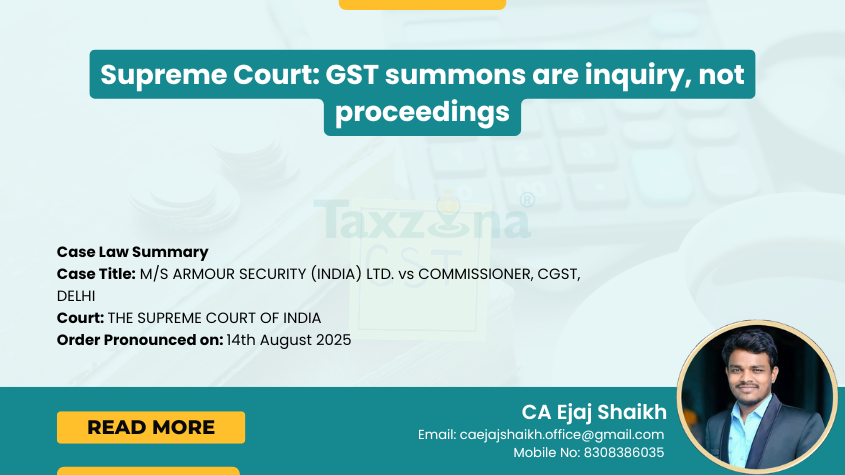
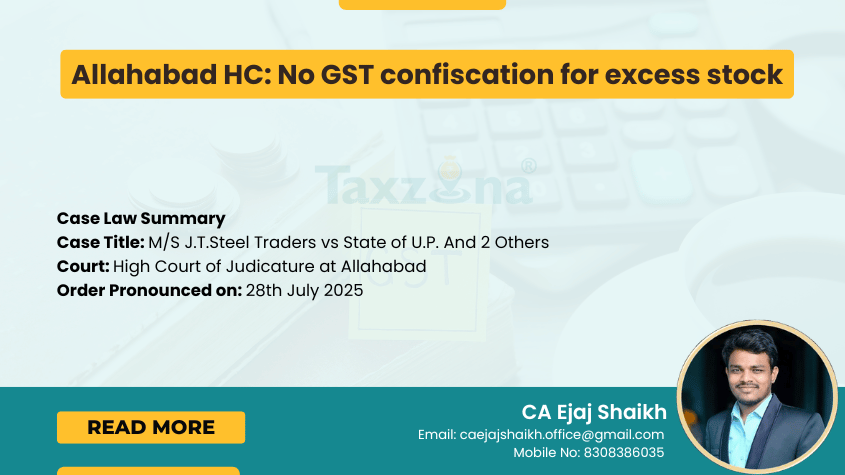
Have Any Question?
Our experts at Taxzona are here to help you with GST, Income Tax, and all your financial queries. Get reliable guidance tailored to your business and personal needs.

